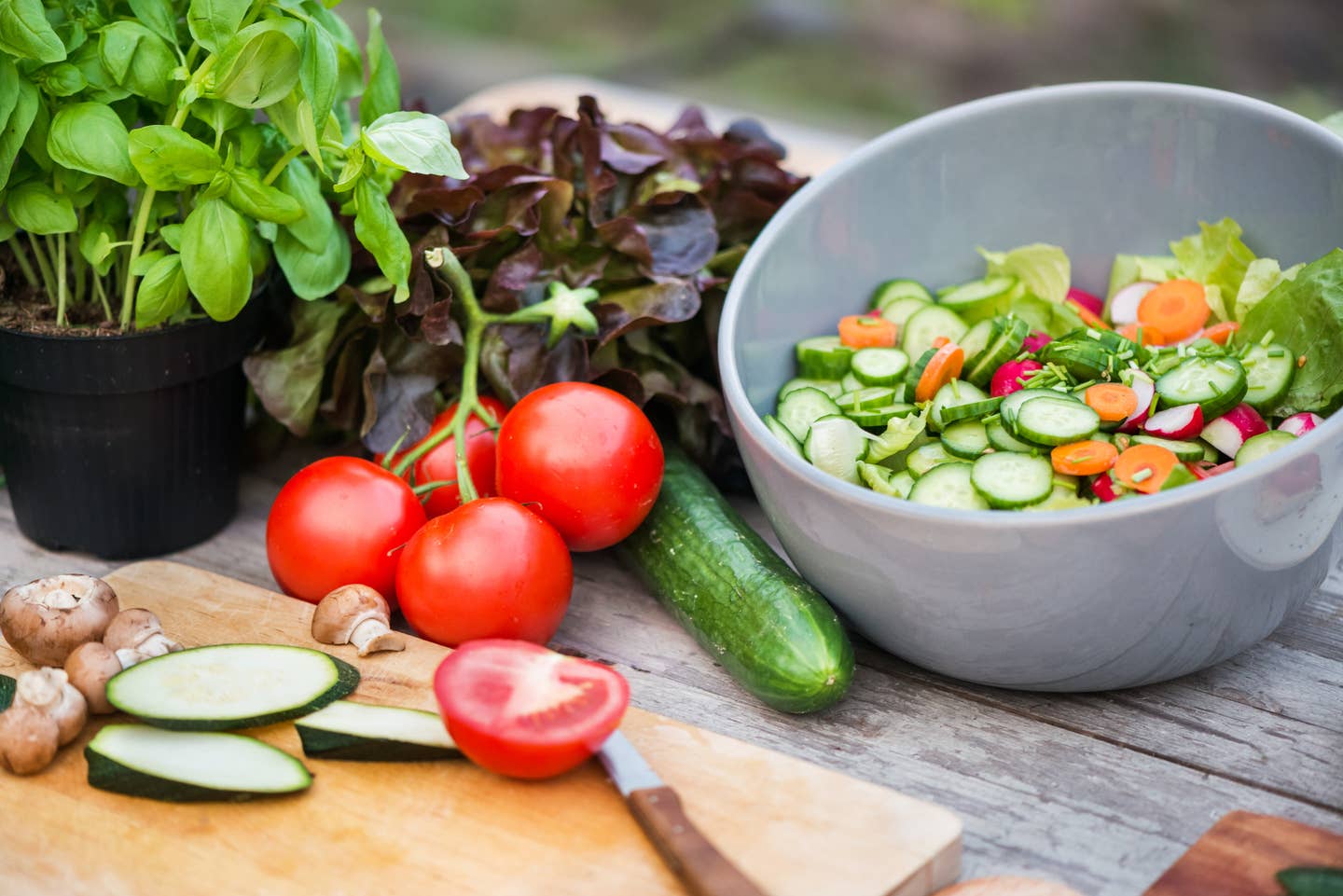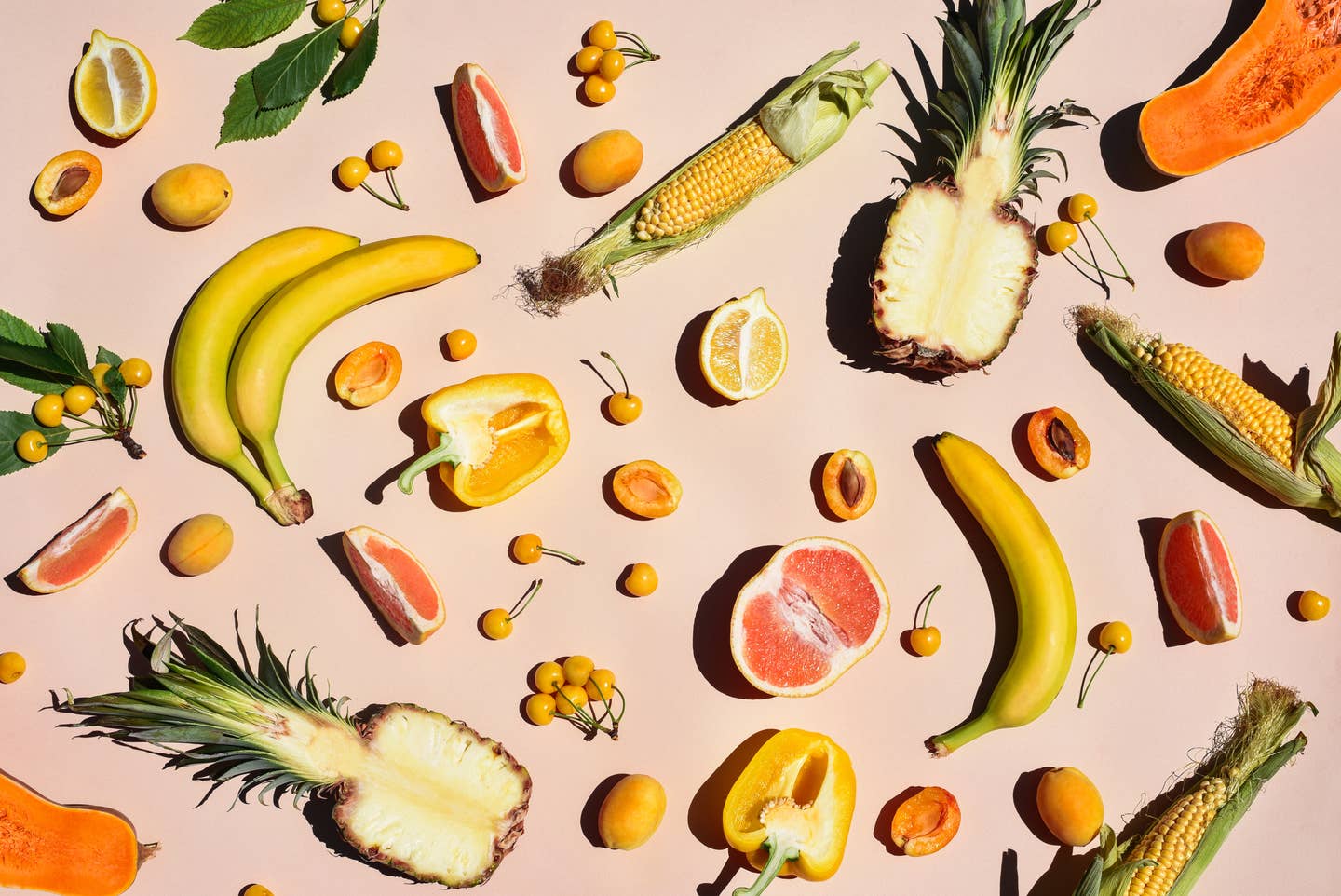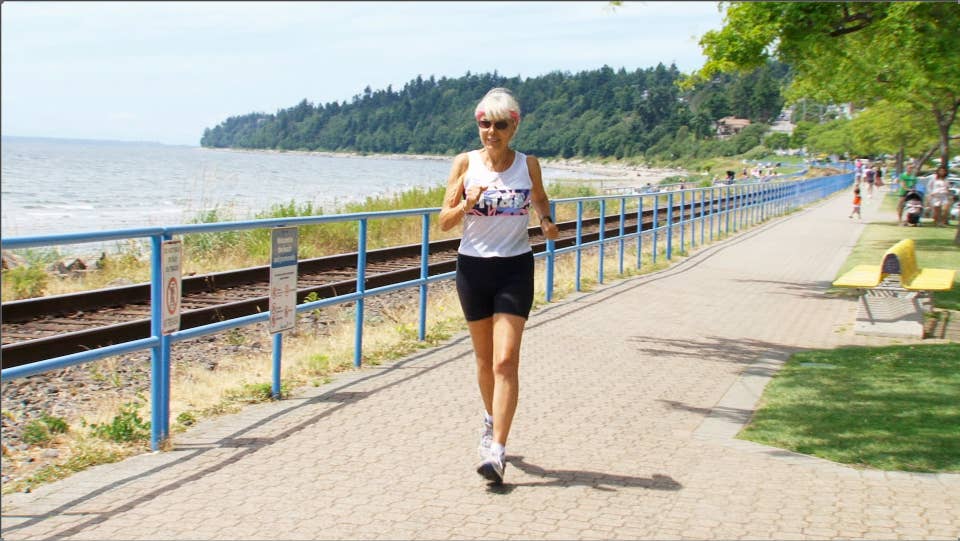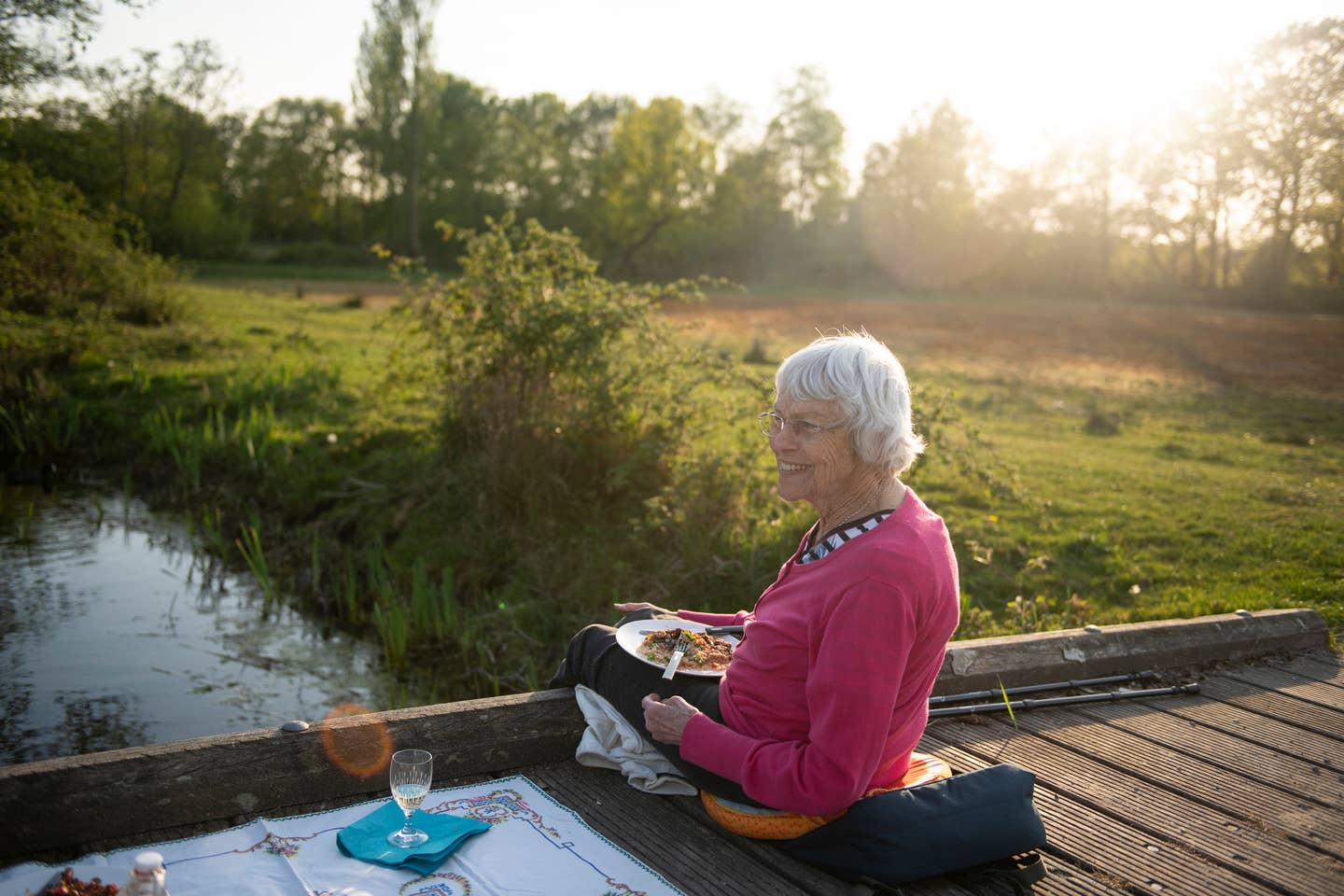
An Inspiring Story of Healing Through Plant-Based Food With a Nutritionist
Beth Skidmore is a woman on a mission. As a nutritionist, mother, wife, and educator, Beth has an inspiring story that starts with a life-changing ‘Ah-Ha’ moment. Her plant-based journey began in an unconventional place—in the hospital, getting ready to welcome her first child into the world—and coalesces with the birth of an initiative to help people further their own plant-based journey. It just may have saved her husband's life.
Q: Many people say that food is medicine. For your family—your husband in particular— that’s a very stark reality. Can you share that story?
A: Nine years ago, my husband and I were in the hospital, and I was being induced, about to give birth. That was the moment we made a commitment to try a plant-based diet. He had been on a serious quest to improve his quality of life, as a type 1 diabetic. That's when a friend recommended that he read T. Colin Campbell’s The China Study; he became so excited and inspired by what Dr. Campbell found in the connection between nutrition and chronic disease that while we were waiting for contractions to kick in, we discussed how he wanted to give plant-based eating a try—starting right then and there.
At the time, we didn’t see it as a long-term commitment, but we were excited to see where it could lead. We had two new beginnings that day: We shared our first vegan salad, and eight hours later we embraced our beautiful baby for the first time! I really love that these moments happened on the same day.
Q. How did going plant-based change your life? And his?
A. We saw pretty quickly, and then also in gradual ways over the long-term, how the decision to go plant-based benefited both of our health. We saw his blood sugar significantly improve and his insulin use go down within the first few months. Over time, I saw exciting improvements in my weight management, skin, and vision (which had always been an issue). My second and third pregnancies were also much smoother and free of a few uncomfortable side effects that I experienced in my first.
Overall, we both just plain felt better! But after those first few months, there was really no question that this would be our new way of life. I wanted to completely understand the theories and facts behind whole-food plant-based nutrition, especially being a new mother to an infant! So, I jumped in whole-heartedly to research, reading books, blogs, and taking classes that completely turned upside down what I had understood about the connection between food and health. It also led me to enjoy plant-based foods. It opened my eyes to how our food choices impact the environment, the treatment of animals, and how our food choices impact others.
Q: What are the main reasons that people should go plant-based?
A: We’ve been taught since we were young that eating animal-based foods is necessary; as it turns out, it's not. As a mother, I see plant-based eating as something I can offer my children, to empower them to think about their long-term health. As a nutritionist, I’ve seen how plant-based science hasn’t made it into textbooks—but the power of plants is irrefutable.
We know now that some 70% of chronic lifestyle diseases, some of the leading causes of death, could be largely preventable with lifestyle changes. Arguably the most significant factor is what we eat every day. That’s empowering—it’s an opportunity.
The Academy of Nutrition and Dietetics put out a ground-breaking position paper on vegetarian diets in 2016 which I think rightfully sums up the main reasons people should consider plant-based eating. It states: “Appropriately planned vegetarian, including vegan, diets are healthful, nutritionally adequate, and may provide health benefits in the prevention and treatment of certain diseases. These diets are appropriate for all stages of the life cycle, including pregnancy, lactation, infancy, childhood, adolescence, older adulthood, and for athletes.
"Plant-based diets are more environmentally sustainable than diets rich in animal products because they use fewer natural resources and are associated with much less environmental damage.”
We’re all looking for tools to improve our health and the health of our planet, and plant-based eating is an option that we should all learn about, have the option to consider, and the support to give it a try.
Q: Right now, many people’s daily lives have been upended and they are stuck at home. Any tips for people who want to try going plant-based?
A: Eating at home is full of opportunities for healthy eating! Access to healthy food is one of the biggest concerns, but whole plant-based foods are some of the most affordable.
Remember the basics of healthy, whole food eating are a balance of fruits, veggies, legumes, like beans and lentils, and whole grains, with some nuts and seeds, which are rich in vitamins. Here are some tips that have worked well for me for eating healthy at home:
- Stock your kitchen with healthy whole plant-foods whenever you can. Handy whole foods make it super easy to lean on nutrient-dense, fiber-rich options rather than seemingly quick but less ideal processed options. A game-changer for me has been local produce delivery boxes - local fresh produce is always super inspiring!
- Keep it low-recipe and build bowls, or stacks and wraps. Find recipes for some of your favorite dishes made with plant-based ingredients and save those for the evenings and weekends when you have more time. For lunch and most dinners, you can keep it simple but still interesting by building different combos of your favorite plant-based ingredients in bowls, stacks and wraps and top them with varying herbs and spices, dips, and sauces.
- The more you can pre-prep, the easier it can be to grab and go for snacks and mealtime. You can batch prep on the weekend, but you can also simply chop extra kale or make extra brown rice and beans when you’re preparing for dinner or pop a small batch of sweet potatoes in the oven, pressure cooker, or air-fryer while you’re eating or working to store for the next day.
- Think fresh and keep healthy staples in your freezer and pantry. Having frozen vegetables and canned whole beans, lentils, and oil-free refried beans on hand, for instance, are nutritionally sound ways to have really quick go-to whole-foods ready with some minimal prep.
- Some of the best snacks don’t need prep, like whole fruits and veggies, beans, and nuts and seeds. An apple with an almond butter dip, a carrot with hummus, pre-baked or air-fried chickpeas, black beans with avocado, and a homemade trail mix are some of my favorites.
Q: What are some of the best resources for recipes, books or websites you recommend?
A: There are so many these days—it’s really grown and there are an incredible amount of plant-based resources out there now! Yay! In terms of simple, delicious whole-food plant-based recipes, some of my favorite recipe resources, other than The Beet, of course, are Happy Herbivore, The Vegan 8, Dreena Burton, Oh She Glows, and Engine 2. They all have great website sites that are loaded with recipes and cookbooks I love. These are my go-to's as well for creating simple sauces at home for my bowls, stacks, and wraps!
Q: What are you working on these days to help educate people?
A: I wish I had the opportunity to learn about plant-based nutrition from a more proactive, preventive standpoint, not in response to managing a chronic disease. My work in this space has been largely centered around creating and contributing to resources that I wish I had on my plant-based journey (and before).
Two years ago I launched a community-minded website and Instagram account on plant-based nutrition and eating locally for my hometown of Santa Barbara: Plant BasedSanta Barbara and @plantbasedsantabarbara.
Q: What inspiring work have you seen people do in this area?
A: There are incredible programs rising on the national landscape and it’s critical that community-centered programs continue to rise as well. In Santa Barbara, Apples to Zucchini, a nonprofit kids cooking school, is an incredible educational program, and they are launching the first plant-based cooking kids camp this summer!
The Vegan Chef Challenge is growing around the country (and Santa Barbara had its first one last year); it's creating a sizable shift in local menus and helping create more normalcy and excitement around plant-based eating in restaurants. I’m soon launching a plant-based nutrition and lifestyle initiative in Santa Barbara, Rooted Santa Barbara that we hope can serve as a model for plant-based nutrition education and community building in other cities.
We need more community-based education opportunities like all of these to build our knowledge of nutrition science, grow our confidence in our ability to prepare delicious plant-based foods, and we need networks of support to help us enjoy plant-forward foods together.
More From The Beet






